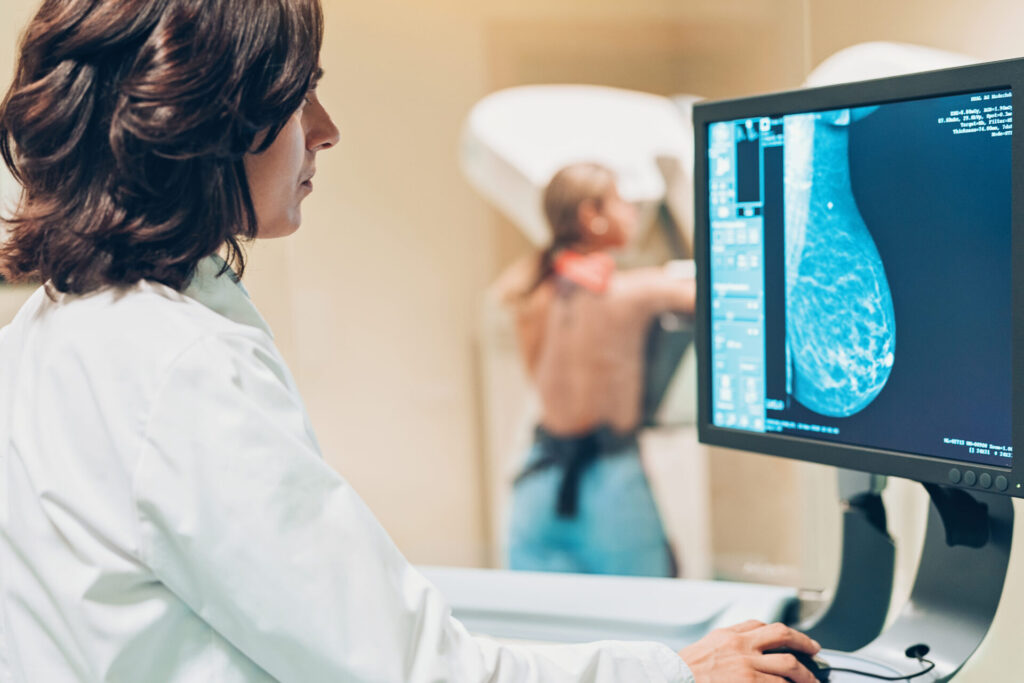Did you know that Australian women face a 1 in 7 lifetime risk of developing breast cancer? That’s right—1 in 7 women. And while family history plays a role in some cases, only 5% of breast cancers are directly linked to genetics. This means the vast majority of breast cancers occur in women with no family history at all.
At The Claremont Clinic, we take breast health very seriously. As part of every consultation, we assess each woman’s individual risk factors for breast cancer and tailor a screening plan that best suits her personal and family health history. We understand that a breast cancer diagnosis can be life-altering, not just for the woman affected, but for her loved ones as well. That’s why we encourage all women to be proactive about their breast health and not ignore potential risks or abnormalities.
For most Australian women, mammograms should be part of regular health checks starting at age 40, with screenings every two years. However, some women may require additional testing or more frequent mammograms based on their unique risk factors. The good news is that advances in breast cancer screening have made early detection more effective than ever. Early-stage cancers are often treatable and, in many cases, curable.
It’s also important to remember that early detection isn’t just about mammograms—it’s about being breast aware. Take the time to regularly check your own breasts for any changes and report any abnormalities to your GP. Familiarize yourself with what feels normal for you, so you can easily spot anything out of the ordinary. The earlier a potential issue is detected, the better the chances for successful treatment and recovery.
Please, don’t delay in taking charge of your breast health. See your GP regularly for breast checks, discuss your screening options, and stay informed about your personal risks. Breast cancer may affect 1 in 7 women, but with the right care, early detection, and attention to health, we can make that statistic far less daunting.
Be proactive. Be breast aware. Be healthy.

